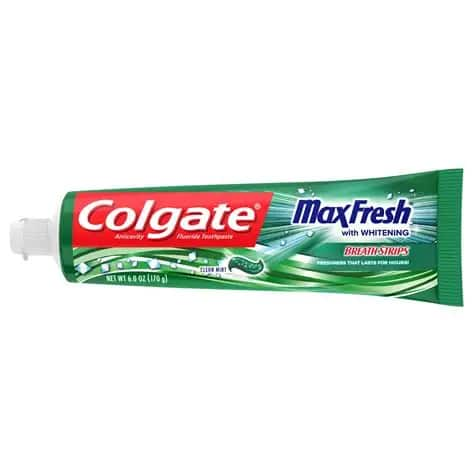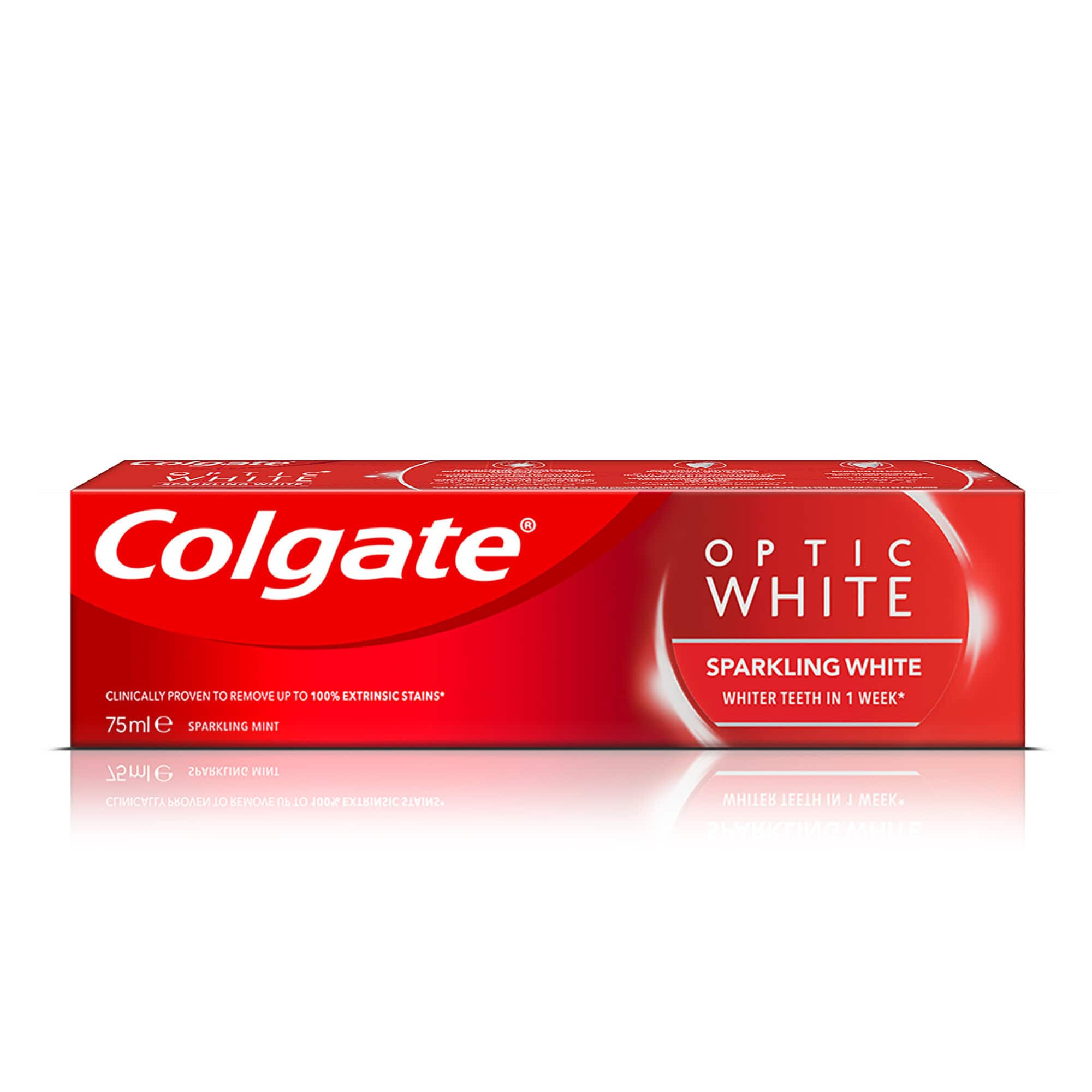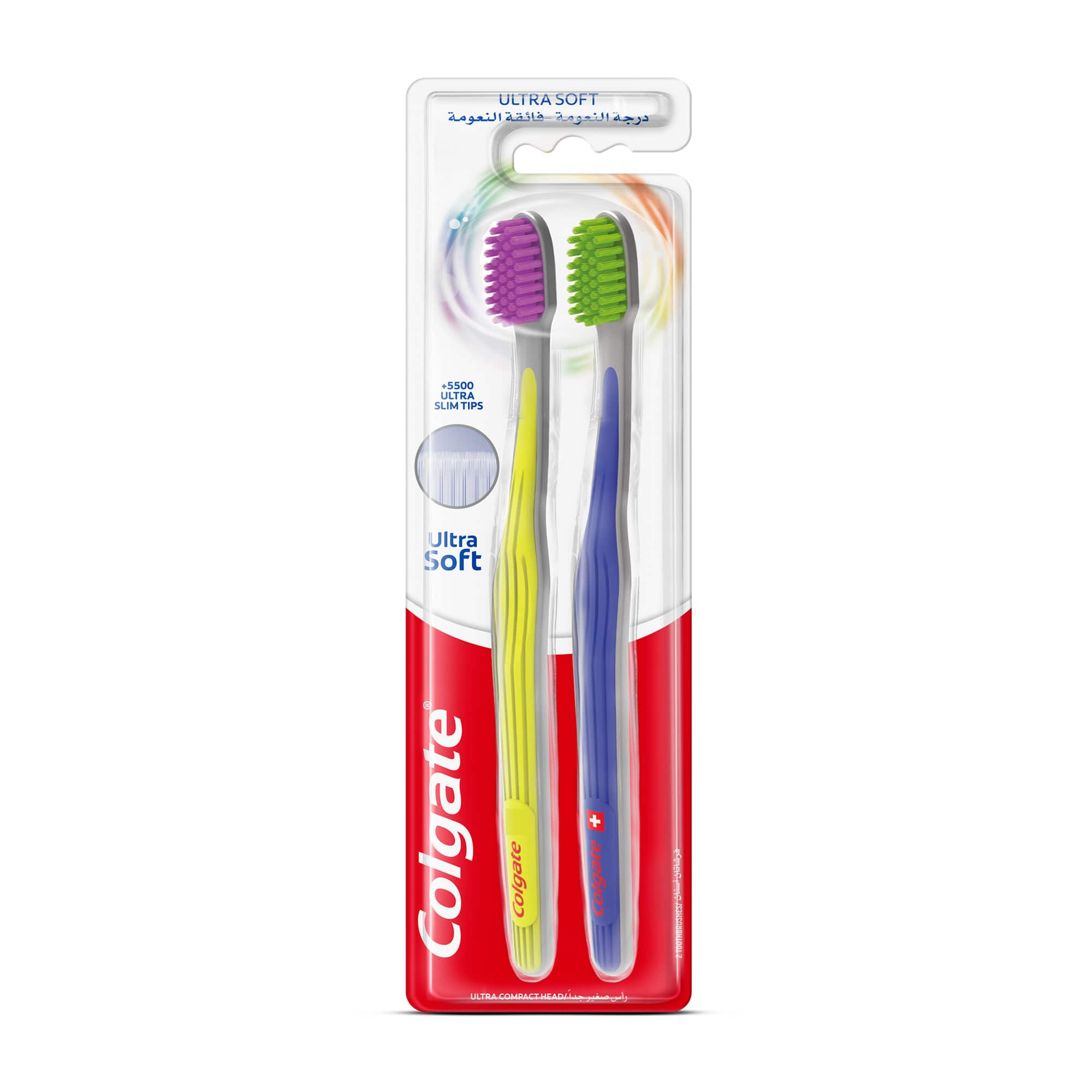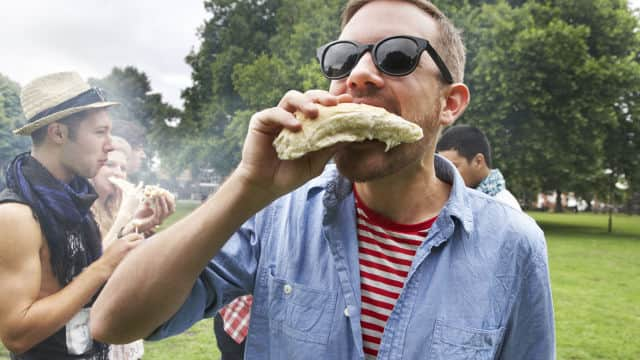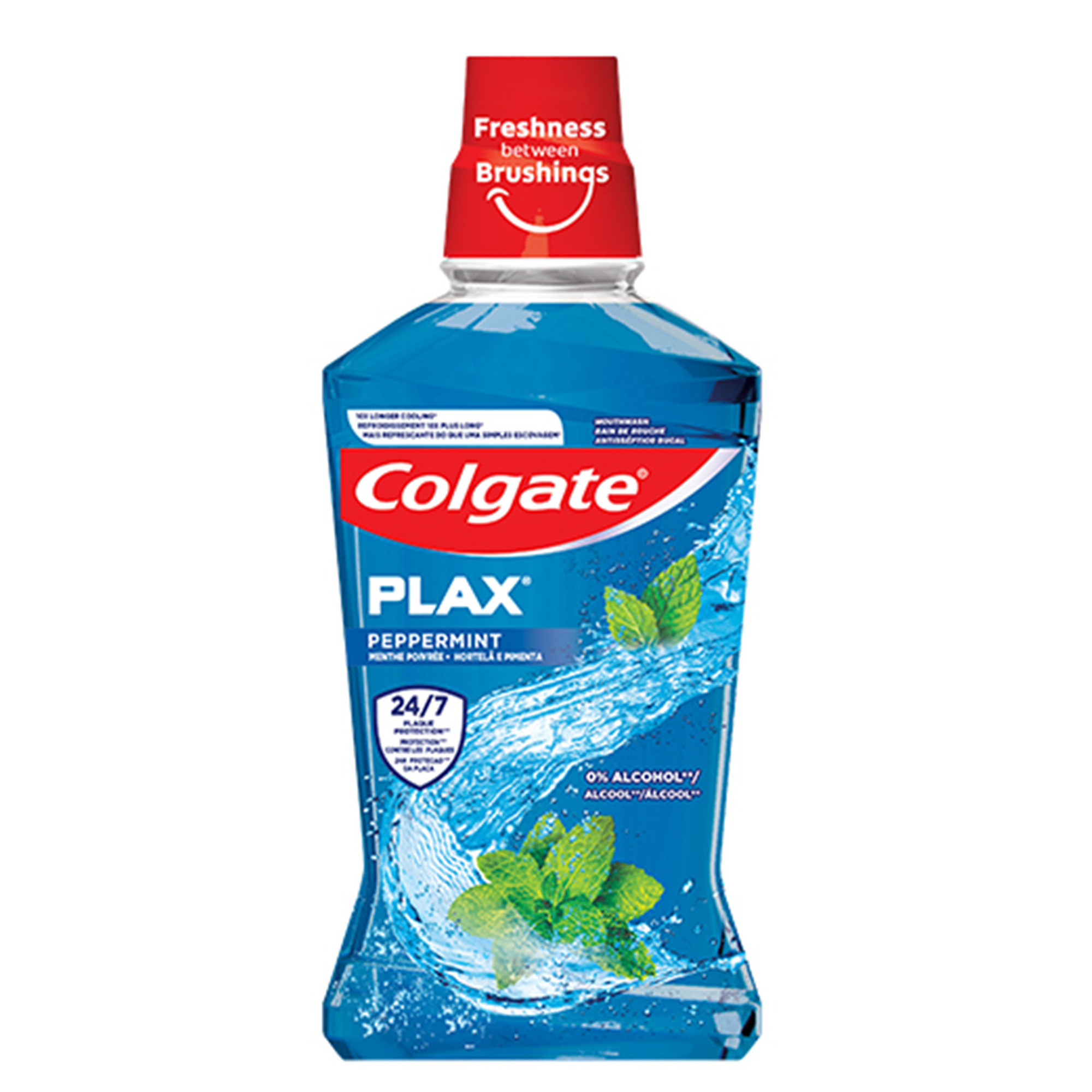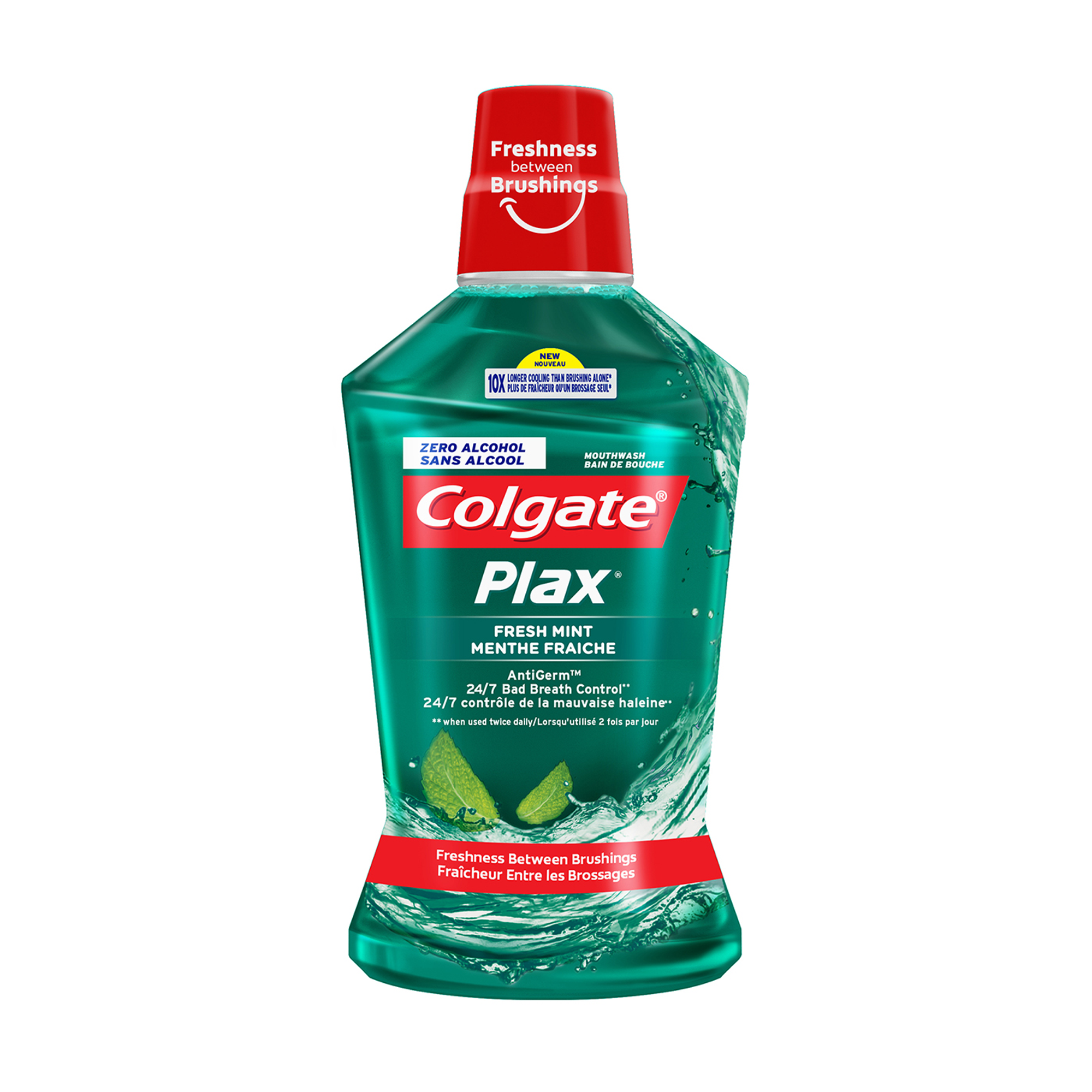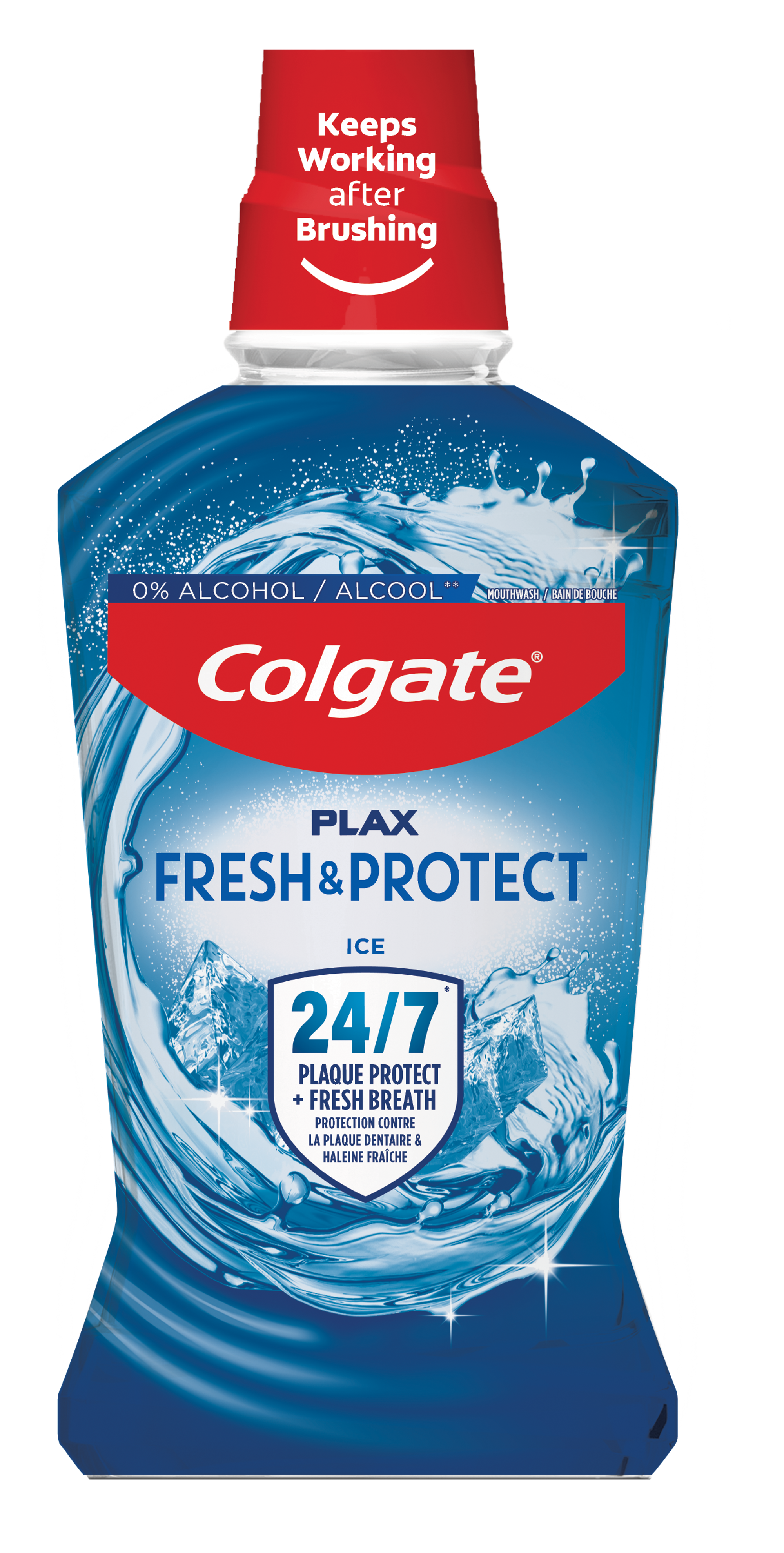Recent studies conducted by Colgate-Palmolive suggest our oral care products may play a role in temporarily reducing the amount of COVID-19 virus in your mouth. Laboratory tests found that specific kinds of toothpaste, mouthwashes, and mouth spray neutralized SARS-CoV-2 — the virus that causes COVID-19 — by more than 99%. A clinical test performed pre-procedurally with COVID-19 positive patients showed certain mouthwashes with cetylpyridinium chloride (CPC) plus zinc, hydrogen peroxide, or chlorhexidine significantly reduced the amount of virus in the mouth for up to 30 and 60 minutes after rinsing. Keep reading for answers to some of the most frequently asked questions. Please note that not all products are available in all markets. Check out your nearest retailer to determine whether a product is available to you.
Overall Questions:
1. Which toothpastes and mouthwashes neutralized SARS-CoV-2 in a laboratory test by 99% and more?
○ Toothpastes include: Colgate Total and select Meridol products.
○ Mouthwashes and sprays include: Those with 0.075% CPC, including most variants of Colgate Total Spray and Mouthwash, Colgate Plax, Vedshakti Spray, and Colgate Zero Mouthwash; Meridol mouthwash, which does not have CPC, also neutralized by 99%.
2. Which mouthwashes significantly reduced the amount of virus in the mouth for up to 60 minutes in the clinical study?
Peroxyl, PerioGard, and Colgate Total (outside the U.S.) sold as Colgate Zero in North America.
3. Would reduced virus levels in my mouth protect me from getting or transmitting COVID-19?
If the COVID-19 virus is detected in your mouth, then you have already contracted the virus. There is currently no conclusive evidence that reducing virus levels in your mouth will prevent getting or transmitting the virus. However, lowering the amount of virus in saliva — which can be transmitted through talking, singing, or coughing — might help reduce transmission risk.
4. Would reduced virus levels in my mouth make my COVID-19 symptoms less severe or help me recover more quickly?
No clinical evidence exists to prove reducing virus levels in your mouth will make your COVID-19 symptoms less severe or help you recover more quickly. Many factors contribute to the length and severity of COVID-19, including the strength of your immune system.
5. What does it mean to “neutralize the virus”?
To “neutralize the virus” means the virus is present but no longer infectious and can no longer multiply.
6. How do oral care products help to neutralize the virus?
Current data suggest these oral care products target the viral envelope to dissolve it. Losing this outer protective coating prevents the virus from attaching to cells and infecting them.
7. Should I brush or rinse before going out or meeting people?
Oral care should be part of your daily personal hygiene routine, and you should continue to wear masks, social distance, and wash your hands to help prevent virus transmission. Currently, no conclusive evidence exists that brushing or rinsing protects against getting or transmitting COVID-19. However, lowering the amount of virus in your saliva, which can be transmitted through talking, singing, or coughing, might reduce the risk of transmission. We have planned additional studies to determine how brushing and rinsing affect the amount of virus in your mouth. However, regular brushing and rinsing with safe and effective products is key to maintaining good oral health.
8. How do laboratory test results represent what happens in a person's mouth?
Laboratory testing is a simplified model used to determine under very controlled conditions whether Colgate antimicrobial formulas can neutralize the SARS-CoV-2 virus. The laboratory method is internationally accepted and recognized to assess viral inactivation for both toothpaste and mouthwash. Colgate-Palmolive is conducting additional clinical research to determine whether similar results occur in the mouth to help neutralize and lower virus levels.
9. How effective are the tested Colgate-Palmolive products compared to Listerine, Crest, and other competitors against the SARS-CoV-2 virus?
We did not test the efficacy of competitor products.
10. If I brush my teeth or rinse with mouthwash, do I need to wear a mask?
Yes. The World Health Organization (WHO) and the United States Centers for Disease Control and Prevention (CDC) recommend everyone wear face masks to reduce the transmission of COVID-19. Continue to follow guidelines that help prevent the contraction and spread of COVID-19, such as wearing a mask, social distancing, and washing your hands.
11. Does brushing your teeth or rinsing with mouthwash have any effect on your antibodies?
No, brushing your teeth or rinsing with mouthwash will not have any impact on your antibodies.
Toothpaste Questions
12. Does every toothpaste neutralize the virus that causes COVID-19?
We have not tested other toothpastes besides Colgate Total and select Meridol products to determine whether they neutralize the COVID-19 virus.
13. Does brushing my teeth impact the amount of the virus that causes COVID-19 in my mouth?
While our SARS-CoV-2 laboratory results are encouraging, we cannot say whether these effects will also occur in the mouth without conducting a clinical study. Our clinical program is currently testing subjects with positive COVID-19 tests to understand if brushing with Colgate Total toothpaste will temporarily reduce the amount of virus in the mouth.
14. How long do Colgate Total toothpaste’s benefits last concerning the levels of virus that cause COVID-19?
We are doing more research to determine whether the virus’s neutralization in laboratory tests will also occur in the mouth. Our clinical results will help us understand how much the virus is reduced and for how long.
Mouth Rinse/Mouth Spray:
15. What are the products that contain 0.075% of Cetylpyridinium Chloride (CPC)?
Most variants of Colgate Total Spray and Mouthwash, Colgate Plax, Vedshakti Spray, and Colgate Zero Mouthwash.
16. Does every mouthwash or mouth spray temporarily reduce the amount of virus in the mouth?
We only tested Colgate Peroxyl, Colgate PerioGard, and Colgate Total (outside the U.S.) sold as Colgate Zero in North America in our clinical study and are pleased to report their effectiveness in temporarily reducing the amount of virus in the mouth. We did not test other products.
17. Does Chlorhexidine (CHX) 0.12 and 0.2% work as well as hydrogen peroxide?
The laboratory study was not designed to compare the effectiveness between products. It is used to screen products’ ability to neutralize the SARS-CoV-2 virus.
18. How much will rinsing with mouthwash or using mouth spray reduce the amount of virus in my mouth?
Laboratory tests showed that in either 30 or 60 seconds of contact time, Colgate mouth rinses with cetylpyridinium chloride neutralized the virus that causes COVID-19 by 99.9%. We conducted an initial clinical study to determine whether this neutralization effect translates into a temporary reduction of the virus in the mouth and confirmed that it does. Study results from a clinical study conducted with Colgate Total (outside the U.S.) sold as Colgate Zero in North America, Colgate PerioGard, and Colgate Peroxyl mouthwashes show that rinsing as directed provides an immediate impact, significantly reducing virus levels in the mouth. These reduced virus levels are sustained up to 30 and 60 minutes after rinsing, though levels are lowest immediately after rinsing.
19. Does rinsing with mouthwash protect me from COVID-19?
While a clinical study shows a significant reduction of virus levels in the mouth using certain mouthwashes — which is sustained up to 30 and 60 minutes after rinsing — no conclusive evidence currently exists that rinsing with a mouthwash or using a mouth spray protects against contracting or transmitting COVID-19. Rinsing regularly, however, plays an important role in maintaining good oral health. Dental professionals recommend using mouthwash as a part of a daily oral care regimen.
20. Should I rinse with mouthwash only at home or also before procedures at the dentist to reduce the amount of the virus that causes COVID-19?
Our research found the largest reduction in virus levels generally occurred immediately after rinsing, and the levels remain significantly lower for up to 60 minutes. We recommend that you rinse at home as directed as part of your daily oral health regimen. From our clinical study, we also recommend rinsing immediately before your dental procedures.
21. When should patients rinse before a procedure?
Based on the results, you could consider having your patients rinse immediately before starting a procedure. Results from the clinical study recorded the largest reduction in virus levels immediately after rinsing. The levels remain significantly reduced for up to 60 minutes post-rinsing. You could also consider recommending your patients rinse less than one hour before arriving at your office to help protect staff they might interact with before their procedure.
This article is intended to promote understanding of and knowledge about general oral health topics. It is not intended to be a substitute for professional advice, diagnosis or treatment. Always seek the advice of your dentist or other qualified healthcare provider with any questions you may have regarding a medical condition or treatment.
